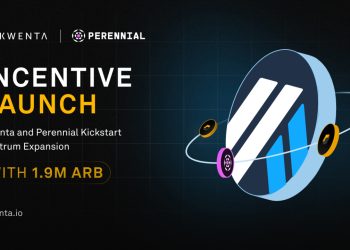Welcome to the decentralized world of blockchain! Before diving into the intricate web of nodes that make up this technology, let’s establish a foundation. Blockchain is often associated with cryptocurrencies like Bitcoin, but it’s more than just a platform for digital currency transactions. At its core, blockchain is a distributed ledger technology where each transaction is recorded in a secure and verifiable way. Now, let’s unfold the crucial role of nodes, the linchpins of this revolutionary system.
What is a Node in Blockchain?
Definition and Role
A node in blockchain is essentially a connection point within the network that can receive, create, store, and send data to other nodes. Think of it as a small but mighty agent that ensures the blockchain’s pulse remains steady and strong. Nodes are the individual parts of the larger data structure that is a blockchain.
Types of Nodes
The blockchain ecosystem is made up of various nodes, each with its unique functions and responsibilities.
Full Nodes
Full nodes are the heavy lifters, maintaining a complete copy of the blockchain and upholding the network’s rules. They verify transactions and blocks, ensuring everything aligns with the protocol.
Light Nodes
Light nodes, in contrast, don’t carry the entire blockchain’s history. They rely on full nodes for information, providing a more lightweight option for participants.
Mining Nodes
Mining nodes are the gold miners of the blockchain world. They compete to add new blocks to the blockchain by solving complex mathematical problems and are rewarded for their efforts.
The Functionality of Nodes
Verifying Transactions
One of the primary duties of nodes is to confirm the legitimacy of transactions. This verification process is critical in maintaining the integrity of the blockchain.
Storing Transaction History
Nodes also act as guardians of history, storing the details of all transactions that have occurred on the blockchain, which is essential for transparency and auditability.
Network Participation
Every node plays a part in the grand orchestra of the blockchain network, contributing to decision-making processes and the overall health of the system.
The Importance of Nodes in Blockchain Security
Decentralization and Trust
Nodes are the champions of decentralization, distributing power away from a central authority. This structure is what gives blockchain its reputation for being secure and trustworthy.
Nodes as Gatekeepers
By validating transactions and maintaining the blockchain’s history, nodes act as gatekeepers, protecting the network from fraudulent activity and ensuring its security.
Setting Up a Blockchain Node
Hardware Requirements
Setting up a node requires certain hardware specifications, depending on the blockchain. Full nodes, for example, demand more storage and processing power.
Software and Blockchain Client
Choosing the right software and blockchain client is crucial. The software must be compatible with the blockchain protocol to interact with the network correctly.
Challenges and Limitations of Running a Node
Resource Requirements
Running a node can be resource-intensive, requiring continuous power and internet connectivity, along with the hardware to support the blockchain’s demands.
Maintenance and Updates
Node operators must also stay vigilant with maintenance and updates, ensuring their node remains in sync with the blockchain’s evolution.
The Economics of Nodes in Blockchain
Incentives for Running Nodes
While some nodes are incentivized through transaction fees or rewards, others are run by enthusiasts and organizations invested in the network’s future.
The Cost of Node Operations
Operating a node comes with its costs, from electricity bills to potential hardware upgrades. These must be weighed against the benefits of participation.
Nodes and Blockchain Scalability
Scaling Issues
As blockchains grow, nodes face scalability challenges, with increased demands on resources and potential bottlenecks in transaction processing.
Proposed Solutions
The community constantly proposes solutions, from protocol upgrades to off-chain transactions, to address these scalability challenges.
Future of Blockchain Nodes
Technological Advancements
Innovation in blockchain technology may lead to more efficient nodes, reducing the barriers to entry for participation and operation.
Changes in Node Dynamics
The role and function of nodes may evolve as blockchain technology integrates with other emerging technologies and adapts to new use cases.
Comparing Nodes Across Different Blockchains
Bitcoin vs. Ethereum Nodes
While both networks operate on a blockchain, their nodes play slightly different roles, reflecting the unique protocols and consensus mechanisms of each.

Nodes in Other Cryptocurrencies
Nodes can vary greatly across different cryptocurrencies, from their function to the way they are incentivized.
The Role of Nodes in Blockchain Governance
Decision Making
Nodes can have a voice in the governance of a blockchain, participating in consensus and voting on upgrades.
Forks and Upgrades
When a blockchain undergoes a fork or upgrade, nodes must decide which protocol to follow, impacting the network’s direction.
Community and Support for Node Operators
Online Communities
Node operators often find a wealth of knowledge and support in online communities, where they can share advice and experiences.
Official Support Channels
Blockchain projects typically offer official support channels to assist node operators with technical issues and questions.
The Legal Perspective of Running a Node
Regulatory Considerations
Operators must navigate the evolving landscape of blockchain regulation, staying informed of legal obligations and changes.
Compliance and Legal Risks
Running a node comes with the responsibility of compliance, and operators must be aware of the legal risks associated with their activities.
Nodes as the Backbone of Blockchain Networks
The Unsung Heroes of Blockchain
Nodes may not be glamorous, but they are the unsung heroes that keep blockchain networks alive and kicking.
Nodes’ Impact on Network Health
The health and robustness of a blockchain rely heavily on its nodes, which maintain the ledger’s integrity and facilitate consensus.
Conclusion
Nodes are the workhorses of blockchain technology, crucial for the network’s function and security. As the blockchain landscape evolves, so will the roles and responsibilities of nodes, ensuring that this technology remains cutting-edge and reliable.
FAQs
What is the most important function of nodes in blockchain?
The most important function of nodes in a blockchain is to maintain a copy of the distributed ledger and ensure its integrity. They do this by participating in the consensus mechanism, validating transactions, and preserving the decentralized nature of the blockchain. This ensures that no single entity has control over the entire network and keeps the blockchain transparent and immutable.
Can anyone set up a blockchain node?
Yes, generally anyone can set up a blockchain node as long as they have the necessary technical knowledge, hardware, and internet connectivity. The specific requirements vary by blockchain; some may have higher technical and resource barriers than others. Open-source blockchains, in particular, are designed to be publicly accessible.
How do nodes ensure the security of a blockchain?
Nodes contribute to the security of a blockchain by constantly verifying transactions and blocks. They follow the protocol’s rules to reach consensus on the state of the ledger. If a node detects a block or transaction that doesn’t follow the rules, it will reject it. This collective verification process makes it extremely difficult for malicious actors to manipulate the blockchain.
Are there any financial benefits to running a blockchain node?
Running a node can offer financial benefits, especially if the node participates in the validation process as a miner or validator, depending on the blockchain’s consensus mechanism. In return for contributing to network maintenance, nodes may receive transaction fees or block rewards. However, not all nodes receive direct financial compensation, especially if they are not involved in creating new blocks.
What impact do nodes have on the future scalability of blockchains?
Nodes play a crucial role in the future scalability of blockchains. They are central to various scaling solutions, such as sharding, where the blockchain is divided into smaller, more manageable pieces, or off-chain solutions, where nodes agree to handle certain transactions off the main chain. The design and number of nodes can significantly affect a blockchain’s ability to scale and handle more transactions without compromising speed or security.


















